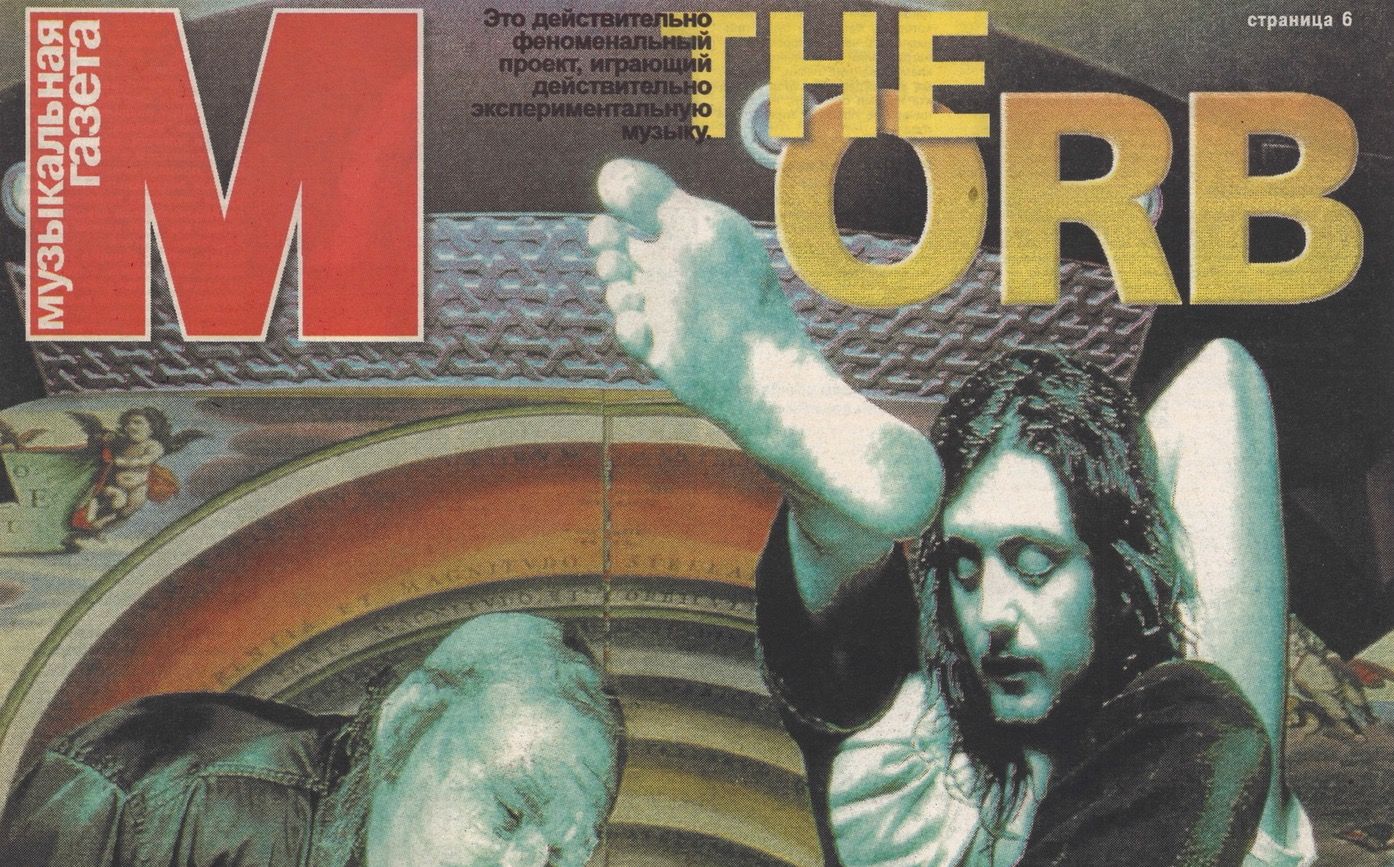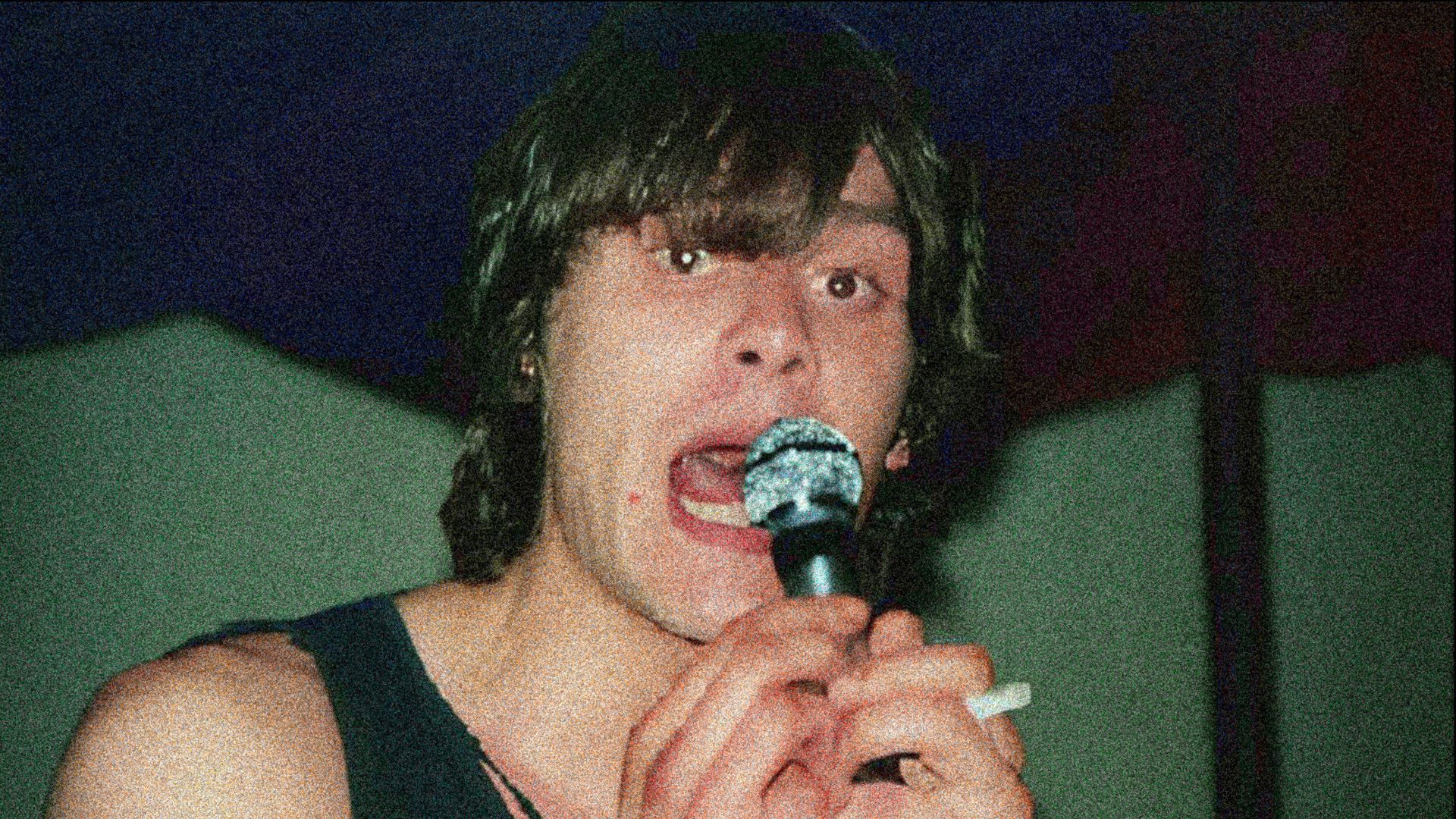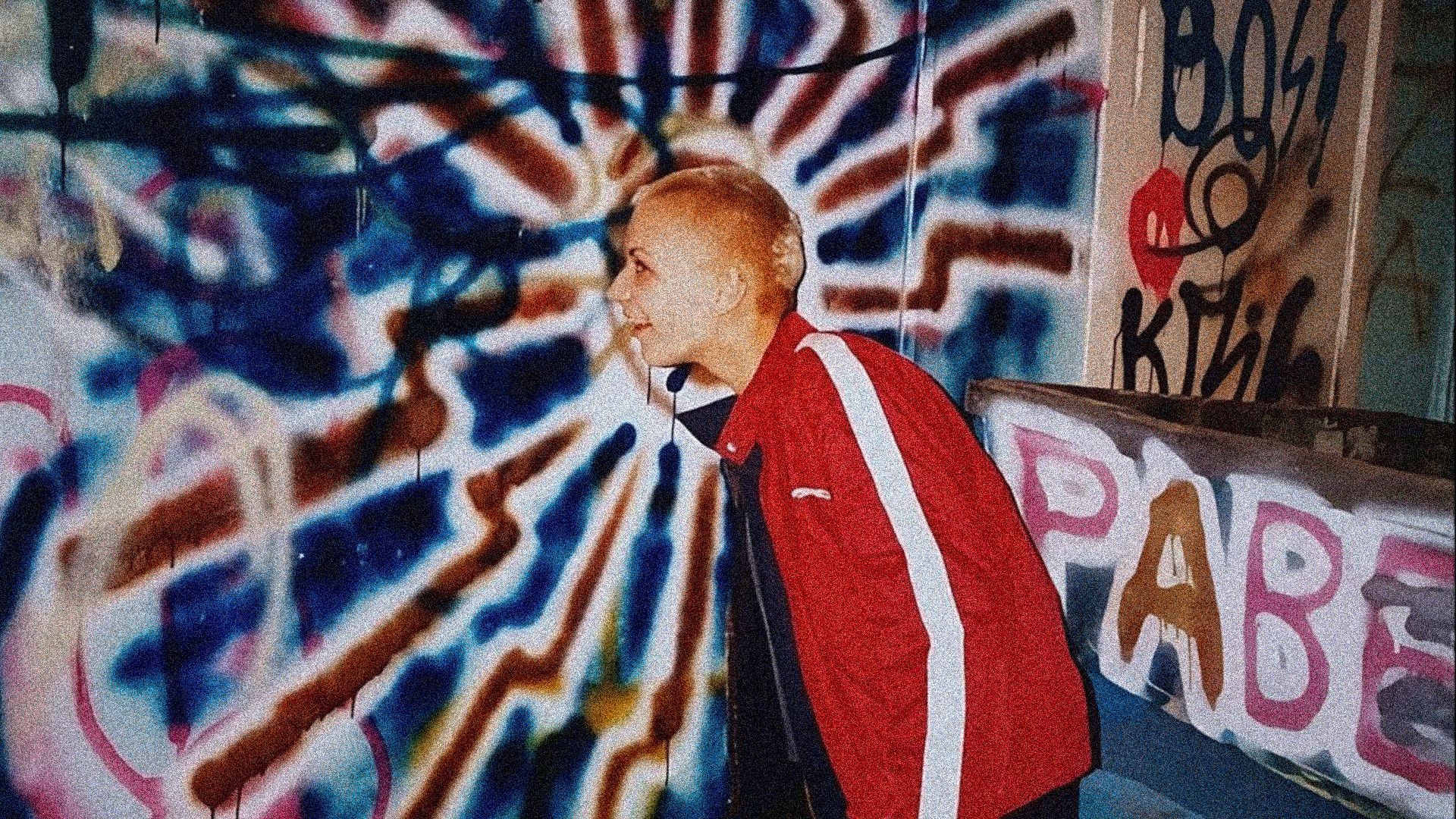Minds Blown: What Did 90s Raves Look Like in Belarus?
From school dances and House of Culture discos to glamorous clubs and the rave at the national TV studio.
In our previous article based on the podcast “Ikarus: Stories of Electronic Music in Belarus”, we observed how the seeds of club culture were first planted in Miensk. Today, we'll follow the early growth of this culture on Belarusian soil. From school assembly hall discos to the rave in the National TV studio, from parties at Alternatyŭny Teatr to a full-fledged techno club – we are covering the development of the Belarusian electronic scene in the first half of 1990s in this article. Belarusian-language text version is available on 34mag.net.
If you speak Belarusian and Russian, we highly recommend checking out the audio version of the podcast for full immersion. All you need to do is press play, close your eyes, and take a ride the old Ikarus bus through Miensk’s iconic nightclubbing spots of the era.
<iframe width="100%" height="450" scrolling="no" frameborder="no" allow="autoplay" src="https://w.soundcloud.com/player/?url=https%3A//api.soundcloud.com/playlists/1859530263&color=%23ff5500&auto_play=false&hide_related=false&show_comments=true&show_user=true&show_reposts=false&show_teaser=true"></iframe><div style="font-size: 10px; color: #cccccc;line-break: anywhere;word-break: normal;overflow: hidden;white-space: nowrap;text-overflow: ellipsis; font-family: Interstate,Lucida Grande,Lucida Sans Unicode,Lucida Sans,Garuda,Verdana,Tahoma,sans-serif;font-weight: 100;"><a href="https://soundcloud.com/radioplato" title="Radio Plato" target="_blank" style="color: #cccccc; text-decoration: none;">Radio Plato</a> · <a href="https://soundcloud.com/radioplato/sets/ikarus-all-episodes" title="Ікарус: гісторыі электроннай музыкі Беларусі" target="_blank" style="color: #cccccc; text-decoration: none;">Ікарус: гісторыі электроннай музыкі Беларусі</a></div><h2>Intraversija on Čyhładze Street with Gangsters on Mercedes</h2>After an unsuccessful attempt at Miensk's first rave, the organizers, surprisingly, got back to organizing new events with full enthusiasm. It turned out that businessman Ihar Šostak, owner of Šo Monopoli agency had attended that rave at the Dynama sports arena. Just before New Year's eve 1993, he invited the guys to play at his disco in Building 8 of the Polytechnic Institute. The disco had a good up-to-date sound system and a cool lighting setup. Later, in February, there was another party at the bar Zodchie, where lighting technician Uładzimir Kustaŭ wowed everyone with lasers, and DJ Claus played his first set.
– As a result, Loša Smiakalin introduces me to Claus and Alik (Andrej Afanaśjeŭ and Ajrat Chuzin – editor’s note), – says Alexi ‘DJ I.F.U.’ Kutuzov, – and introduces me as a DJ with an interesting collection that he spins at his disco. So, the next party the guys organized themselves I not only attended, but also helped organize. The name for the whole venture was F. U. Entertainment, affiliated with the Russian F. U. Entertainment.
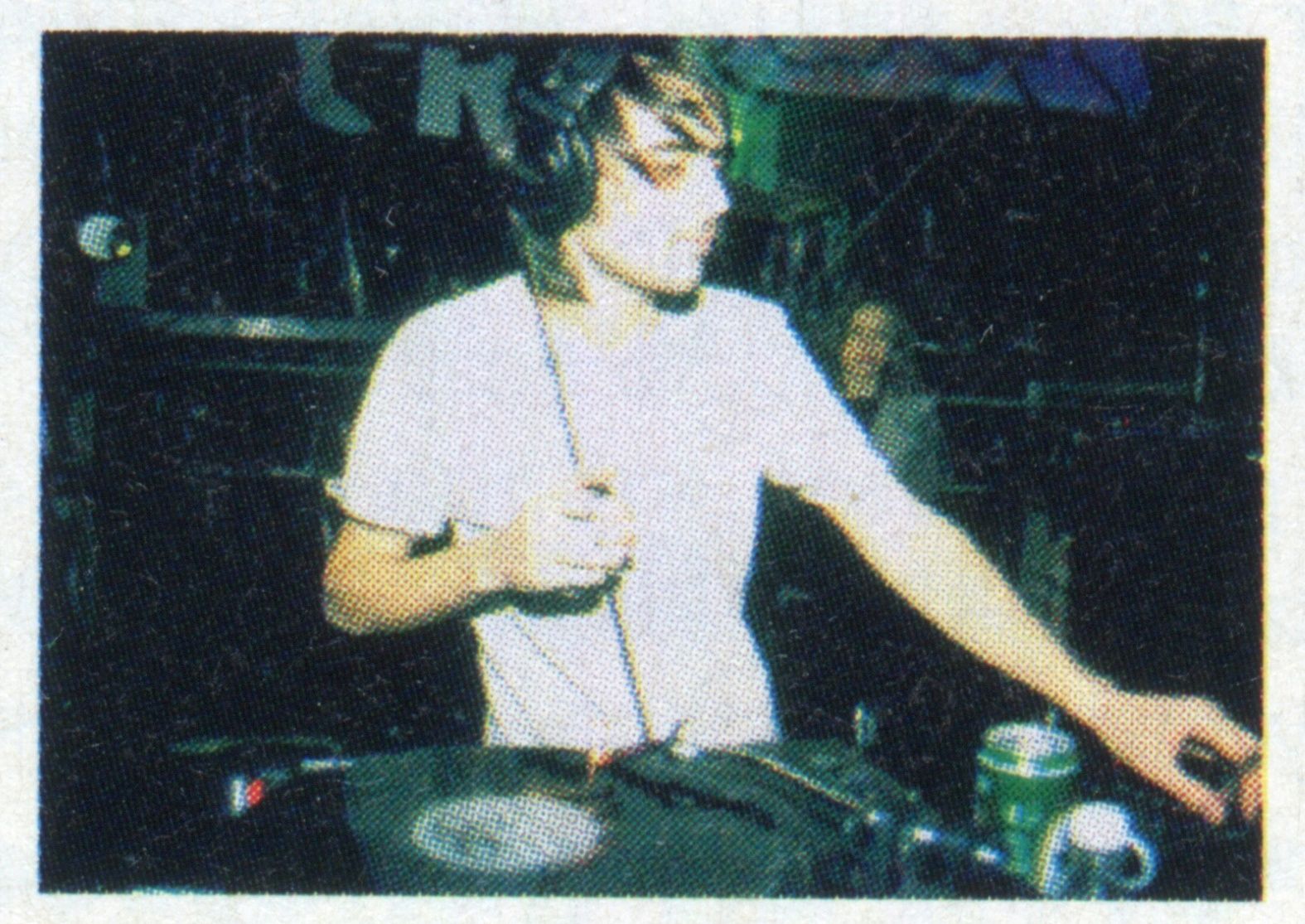
Claus was friends with Ivan Salmaksov at the time and jokingly suggested writing the name of the organization that held parties in Moscow on the poster. That's how the first promo group in Miensk came to be.
– You have to understand that parties weren’t happening every week like they do now, – Kutuzov continues. – They would take place once every two or three months. So the in-crowd eagerly awaited these moments, with everyone gearing up for the next party.
The next major party, called Intraversija, was scheduled for July 3, 1993, at the Moladzievy Teatr (Youth Theater) on Krapotkina Street. But the organizers ran into some difficulties.
– We rented out the Moladzievy Teatr space, which had just reopened after renovations, – Claus explains. – We bought all the necessary supplies and alcohol for the bar, ordered the equipment, did the advertising, and ran a big promotional campaign among the alternative youth of the city. And then, literally the morning of the day of the party, scheduled to start at 11 p.m., the director of the theater calls and says the event is no go due to the paperwork after the renovation not being ready, and the City Council not giving a green light for such events. We were extremely stressed and already started informing people that the party was canceled, when I had the idea to just move the whole event to a different venue, since everything was practically ready.
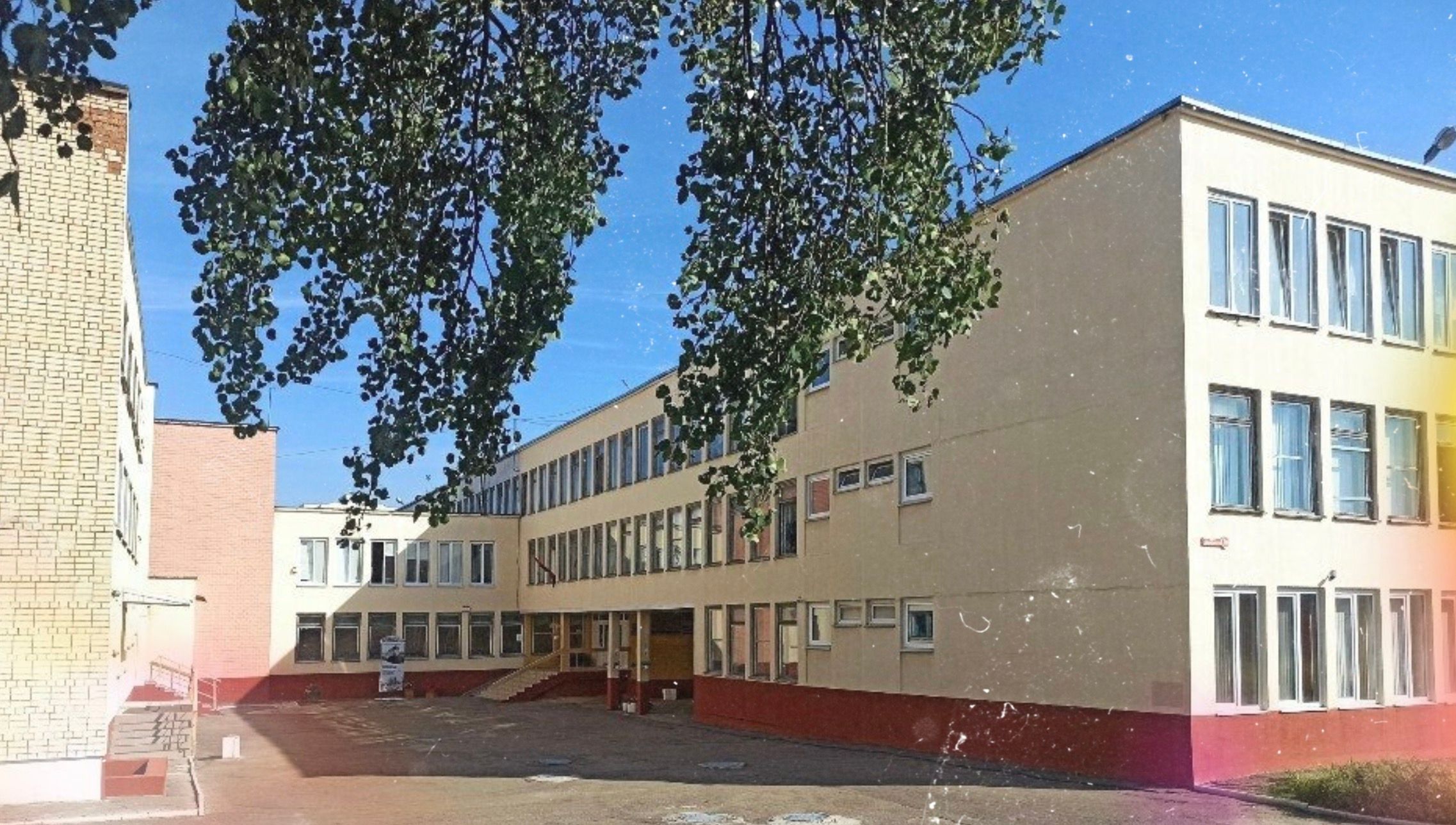
By complete chance, we found a secondary school on Čyhładze Street (in a single-family residential neighborhood in the Masiukoŭščyna area. – editor's note) with a suitable size assembly hall. We moved all the equipment and the bar there, and for those who had come to the Moladzievy Teatr, we arranged a free shuttle bus.
Surprisingly, the party turned out a success. People's minds were blown. Along with the young scenesters who ‘got it’, some gangsters showed up in their Mercedes and BMWs... They spent a ton of money at the bars, and then shook our hands saying, ‘Wow, finally some exciting nightlife happening in this city!’
<iframe width="100%" height="166" scrolling="no" frameborder="no" allow="autoplay" src="https://w.soundcloud.com/player/?url=https%3A//api.soundcloud.com/tracks/145694023&color=%23ff5500&auto_play=false&hide_related=false&show_comments=true&show_user=true&show_reposts=false&show_teaser=true"></iframe><div style="font-size: 10px; color: #cccccc;line-break: anywhere;word-break: normal;overflow: hidden;white-space: nowrap;text-overflow: ellipsis; font-family: Interstate,Lucida Grande,Lucida Sans Unicode,Lucida Sans,Garuda,Verdana,Tahoma,sans-serif;font-weight: 100;"><a href="https://soundcloud.com/mbu93" title="MBU" target="_blank" style="color: #cccccc; text-decoration: none;">MBU</a> · <a href="https://soundcloud.com/mbu93/01djs-salmaksov-kubikov-claus-morning-pin-pong-mix-part-1-minsk-1997" title="DJ's: Salmaksov-Kubikov-Claus / Morning ping-pong mix/ part 1 Minsk 1997" target="_blank" style="color: #cccccc; text-decoration: none;">DJ's: Salmaksov-Kubikov-Claus / Morning ping-pong mix/ part 1 Minsk 1997</a></div>On September 25–26, 1993, promoter Mikalai Miatlicki, who had connections with European tour agents, organizes the Holland Underground Party at the Institute of Foreign Languages (nowadays Miensk State Linguistic University – editor’s note), featuring Dutch DJs. They bring their Technics turntables, and for the first time in Miensk, vinyl records are being played at a party.
<h2>Alternative Nightlife for Fifteen U.S. Dollars</h2>– Later, we discovered Alternatyŭny Teatr (Alternative theater) as a potential event venue, – Kutuzaŭ recalls. – It was a great space. Siarhiej Fienienka used to screen films there, offering essentially a film education workshop of sorts: he showed works by Peter Greenaway, David Lynch, Jim Jarmusch, and Derek Jarman. All the progressive youth of the city went there, and Belarusian Climate (famous Belarusian art community of the 90s – editors's note) also held concerts there.
We settled in there for a while and organized four or five monthly parties. The first international DJs came to play there, brought in by our longtime friend Mikałaj Miatlicki. He was friends with the British Council and brought in artists like Laibach and Marc Almond (the vocalist of Soft Cell – editor's note).
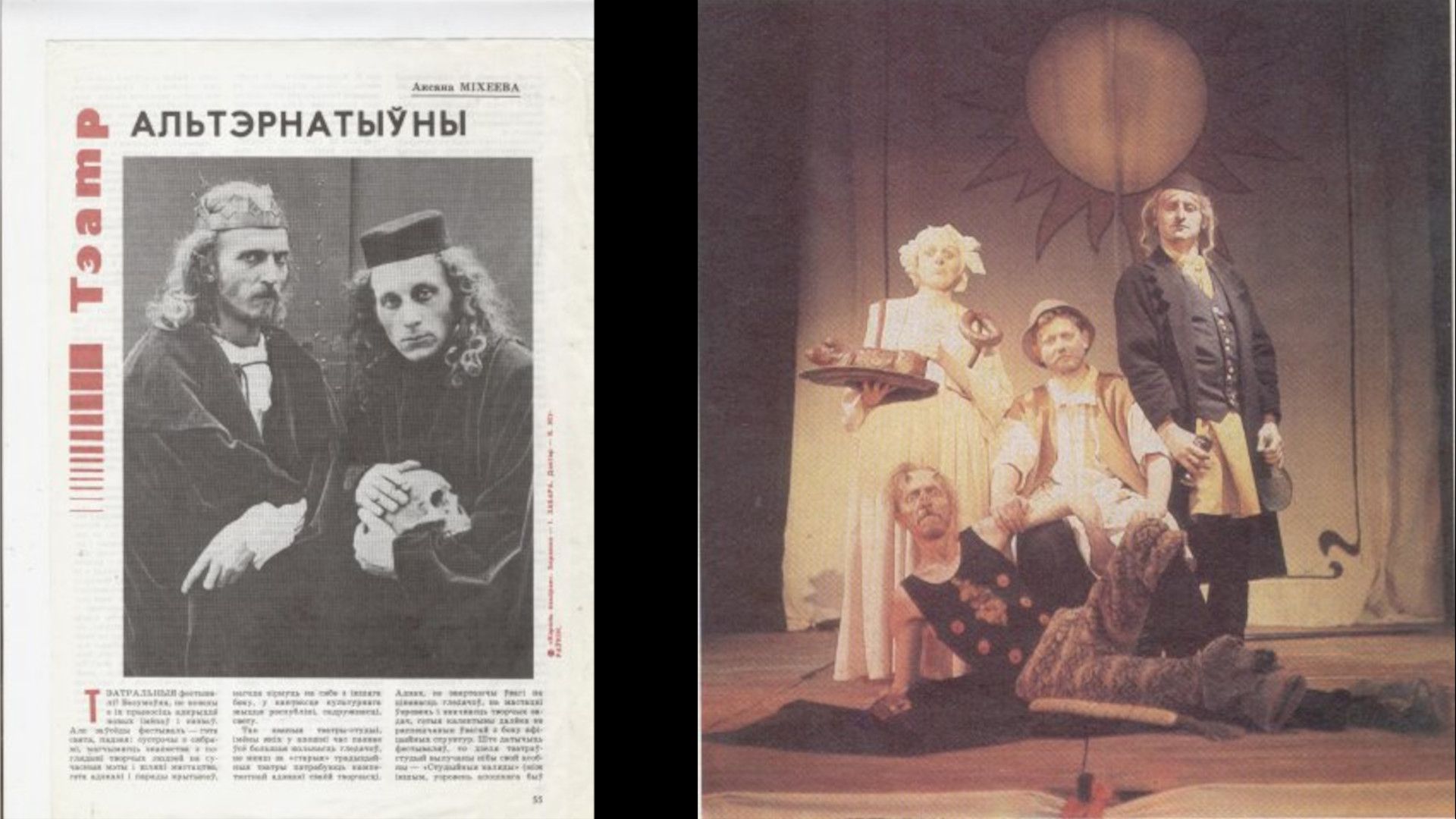
Alternatyŭny Teatr became a unique phenomenon of the new era. It began in the late '80s as a theater club at the Railway Workers' Palace of Culture. Later, an architectural institute offered them a space on Krapotkin Street, where the theater fully came into its own. It was a melting pot of people from all social strata, with diverse outlooks and values. A place they exchanged experiences and immediately came up with new ideas.
The concept behind Alternatyŭny Teatr was that the new class of wealthy individuals should support and transform the societal environment they are part of. It also played a formative role in shaping the electronic music scene in Miensk. According to Alexi Kutuzov, it was the first place in the city where "people learned what true club life was all about."
In February 1994, Mikalai Miatlicki brought over the Dutch DJs and artists for an entire month. He organized a series of parties called Windmills and Cheese, inviting pioneers of the Dutch club scene DJ DNA and MC Buddha, along with their sound system.
At that time, DNA had this to say about the Miensk crowd: "The youth here and in Europe are the same. Dutch kids maybe dress a little better. But at the parties, you are as well-dressed and behave just like the party kids in Europe."
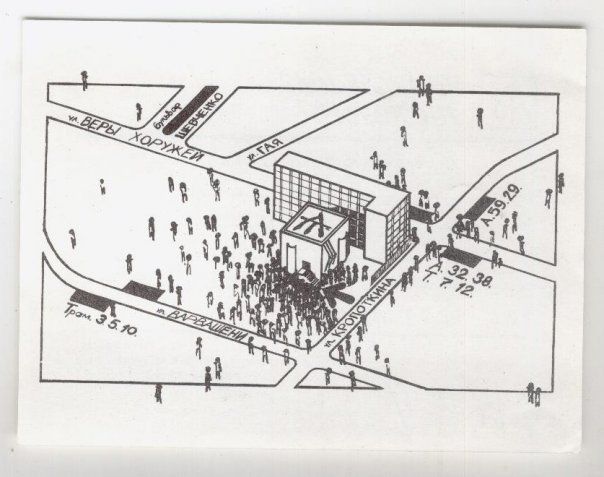
The theater had a season ticket system for their film screening and music club. So F.U. Entertainment took a page from their book and made their own club membership cards.
– We printed out green F. U. Entertainment club member cards, hand-numbered them. – recalls Kutuzov. – I lived downtown and knew pretty much everyone in the clubbing scene, so I was put in charge of public relations, which meant selling the club member cards. The card cost 10-15 U.S. dollars and granted you admission to the next four parties in Alternatyŭny Teatr. I sold 92 of those cards. I remember that exact number like it was yesterday. Some people still have those cards as keepsakes.
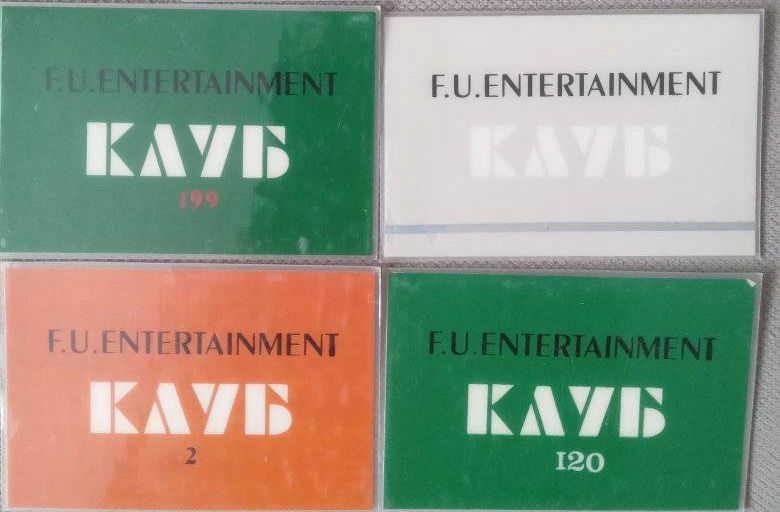
Later, the theater's building would be bought out by the Austrian bank Raiffeisen, who opened a Priorbank office there. This marked the end of the first alternative dance club in Miensk.
<h2>F. U. Entertainment in a Circus Tent</h2>After the closure of the Alternatyŭny Teatr, F. U. Entertainment relocated to a tent circus that stood close to where Dreamland amusement park would later open. “A giant circus tent, where we organized two or three parties one summer," – recalls Kutuzov. "Then we also did a party at the Writers' Club by the Horky Park. It was a great venue; they had a winter garden – perfect for a chill-out space. I remember that party was a real breakthrough in terms of attendance: over three hundred people. It was a real ‘wow’ moment!”
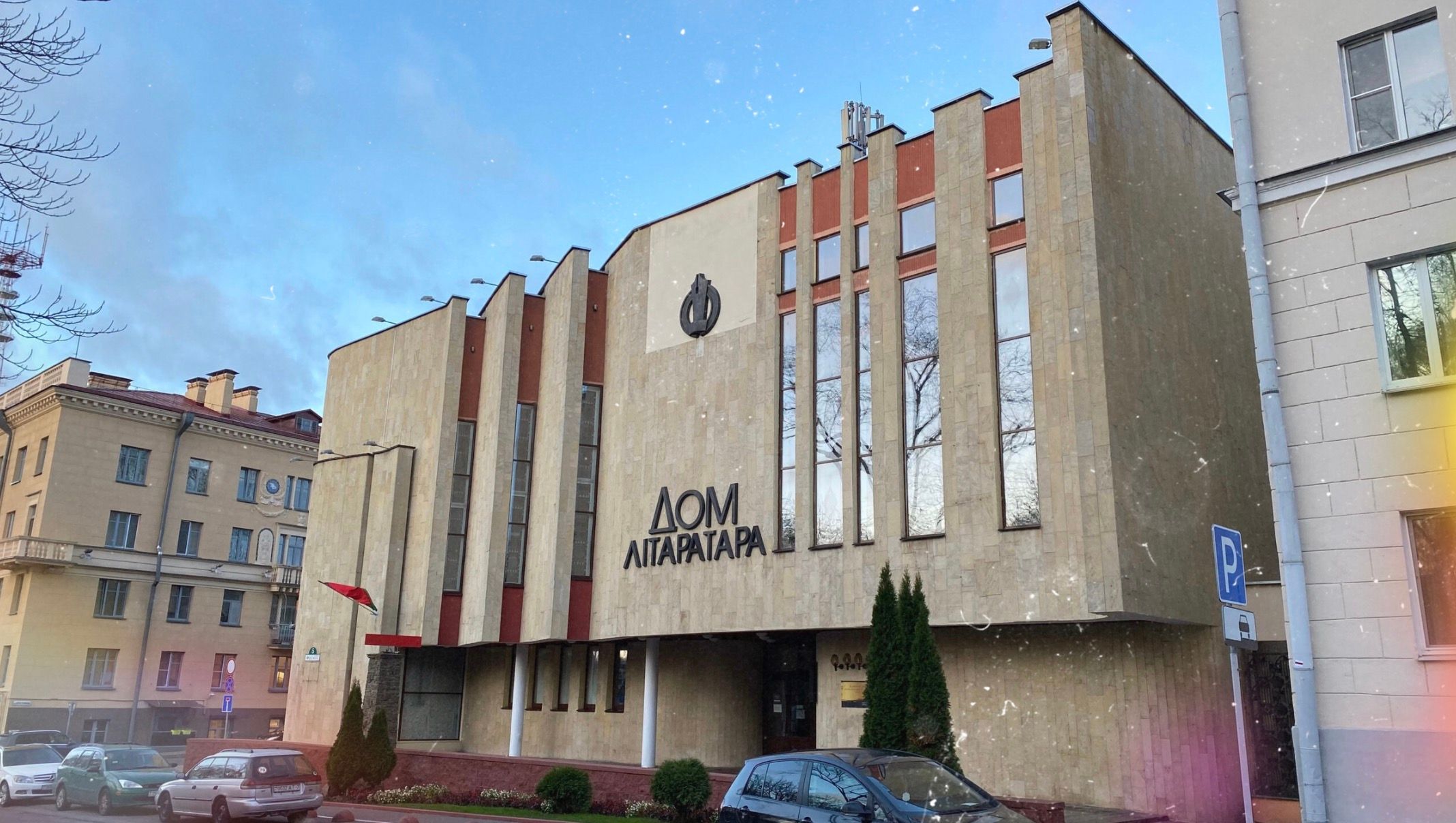
It's important to note, that those were the days before even print promotion of posters or flyers – purely word-of-mouth. Alexi would make four or five phone calls to the club member cardholders who would spread the news to their friend groups. He also mentioned it to acquaintances he ran into on the street. Those were also the days before actual DJ names, and our heroes would end up using their nicknames, like Claus, or aliases based on their love for Depeche Mode, like Ifeelyou (after the band’s eponymous track), later abbreviated to I.F.U.
– The circus tent phase did not end well for F. U. Entertainment. We had appointed Aleh Rudaminski the director. He was a real grown-up compared to us kids. In turn, he probably saw it as a commercial opportunity and evidently pocketed a chunk of the profits. At that time, we didn’t think about money; we were just having fun playing music, hanging out, and didn’t pay much attention to the business side of the parties. So, one day he says: 'Guys, we're 300 dollars short to cover the rent of the circus tent. But if we can come up with it, we can keep making parties there.' Being a good-natured naive boy, and the youngest member of the crew, I went to my mom and borrowed 300 U.S. dollars from her. Everybody thanked me and eventually I came to realize that the money was either split up behind my back or Rudaminski just pocketed most of it. So F. U. Entertainment fell apart and I've been joking ever since that I purchased the F. U. Entertainment brand for 300 U.S. dollars.
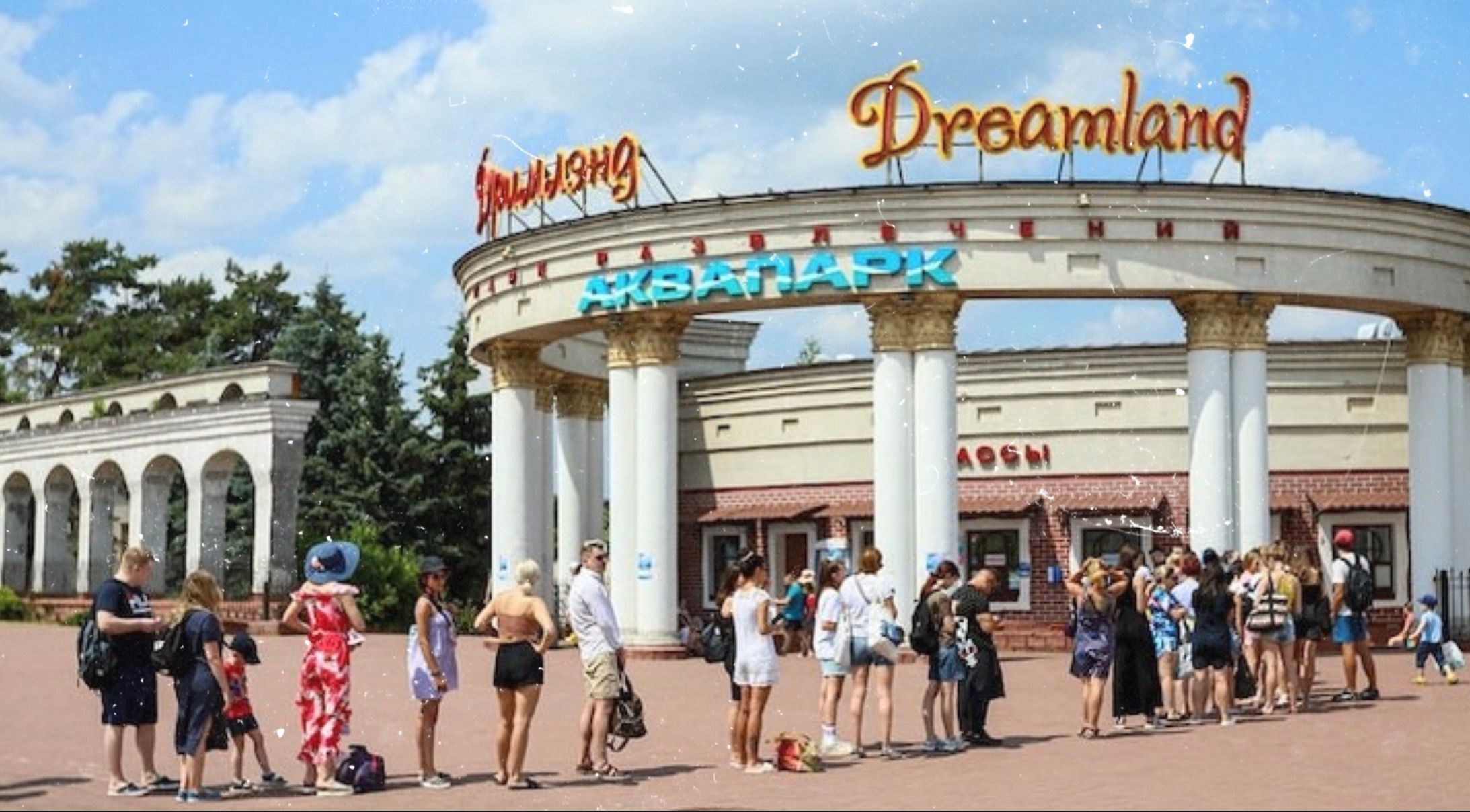
In 1994, parties started taking place at the Tractor Factory's House of Culture as well. Micia Hryšanaŭ, a.k.a. DJ Mitya, became their organizer. He had started out back in 1991 hosting parties in the dormitory of the Polytechnic Institute's architecture department. They were called Techno by Mitya at the Biez Cara Ŭ Halavie (Without a king in your head) disco. One can only imagine what went down there. After a while, the police shut down the whole operation because some families living in the dormitory complained it was too noisy.
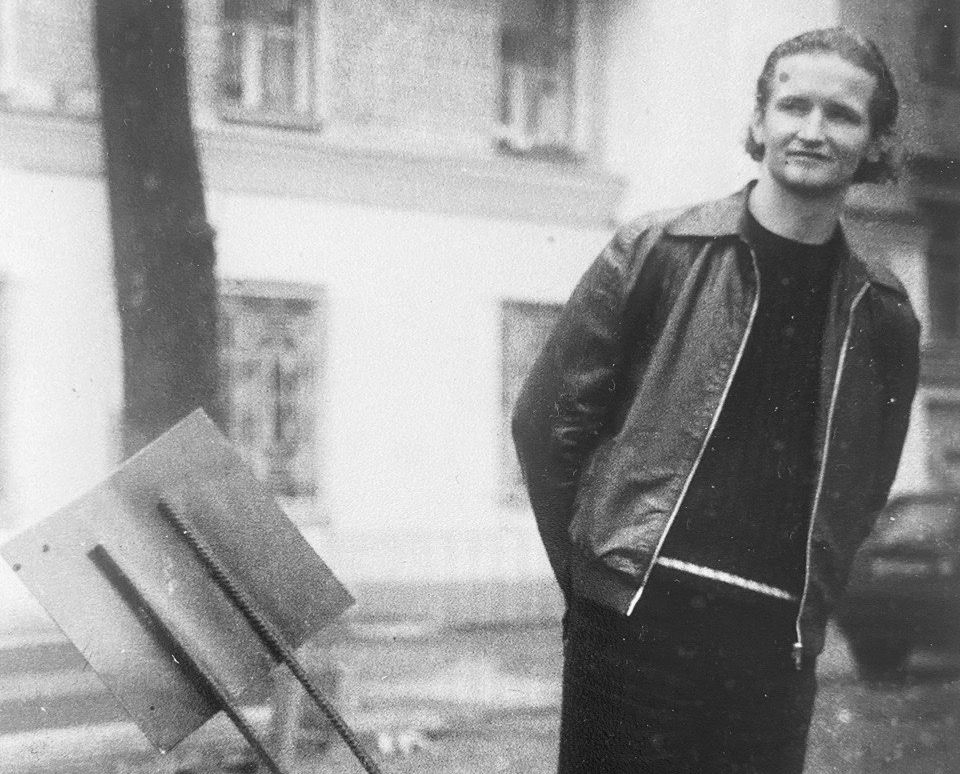
– It lasted maybe six months, at the most, – says Micia. – Once a month, maybe even once every two months. But it was incredibly fun while it lasted. I played a lot of remixes of Depeche Mode and Kraftwerk, for example. Karl Bartos just released an amazing album ‘Esperanto’ with his project Elektric Music, and I premiered it there – everyone danced like crazy. Björk’s ‘Debut’ album – some of the tracks on if were just perfect for our parties.
Then, I realized I needed to do my own thing after visiting a few F. U. Entertainment parties, where Claus was DJing. I used to attend his parties a lot. They weren't widely advertised, just word-of-mouth among the in-crowd. You know, like the early raves in England. Getting messages by telephone, occasionally someone may slip you a flyer downtown. I think it was Alexi I.F.U. who introduced me to this scene.
I thought those parties were amazing and I decided to organize one of my own. So I gathered enough music – CD's were beginning to hit the scene back then. One memorable album of the era was Sven Väth's 'The Harlequin The Robot And The Ballet-Dancer'. With this CD and a whole bunch of cassettes I played my first set in Railroad Workers’ House of Culture. Those were evening events ending at midnight, but that was good enough for us. Claus' crowd started going to our parties as well. His parties took place about once a month, so we filled that gap, helping out the partygoers jonesing for their dance fix. Claus himself would attend as well. Everybody was like 'We're so grateful there is finally another great party!'
<iframe style="border: 0; width: 100%; height: 439px;" src="https://bandcamp.com/EmbeddedPlayer/album=1583093485/size=large/bgcol=333333/linkcol=ffffff/artwork=small/transparent=true/" seamless><a href="https://svenvaeth.bandcamp.com/album/the-harlequin-the-robot-and-the-ballet-dancer">The Harlequin, The Robot And The Ballet-Dancer by Sven Väth</a></iframe>Alexi Kutuzov: At that time I became friends with the guys known as DJ Mitya and DJ Paliony. They hung out at our parties. We immediately teamed up and created our own promo group called Intensive Music Club.
Micia Gryšanaŭ: Paliony would help me out with the transport and negotiations, he was a very valuable partner in general. We made up the name Intensive Music Club. That name spread around so much that many thought that was the name for all that kind of music.
<h2>Beginnings of Glamorous Nightlife. Face Control and Cocaine</h2>In 1995, a club/bar called Addis Abeba opened. It was located in the Pijanier (Pioneer) cinema. The venue was reggae and dub oriented, but occasionally, they hosted various musically diverse parties as well. It was a favorite hangout spot of the Miensk bohemian crowd: partygoers, advertising and media industry people, artists, photographers, musicians like Lyapis Trubetskoy, Drum Ecstasy, and the entire Belarusian Climate scene.
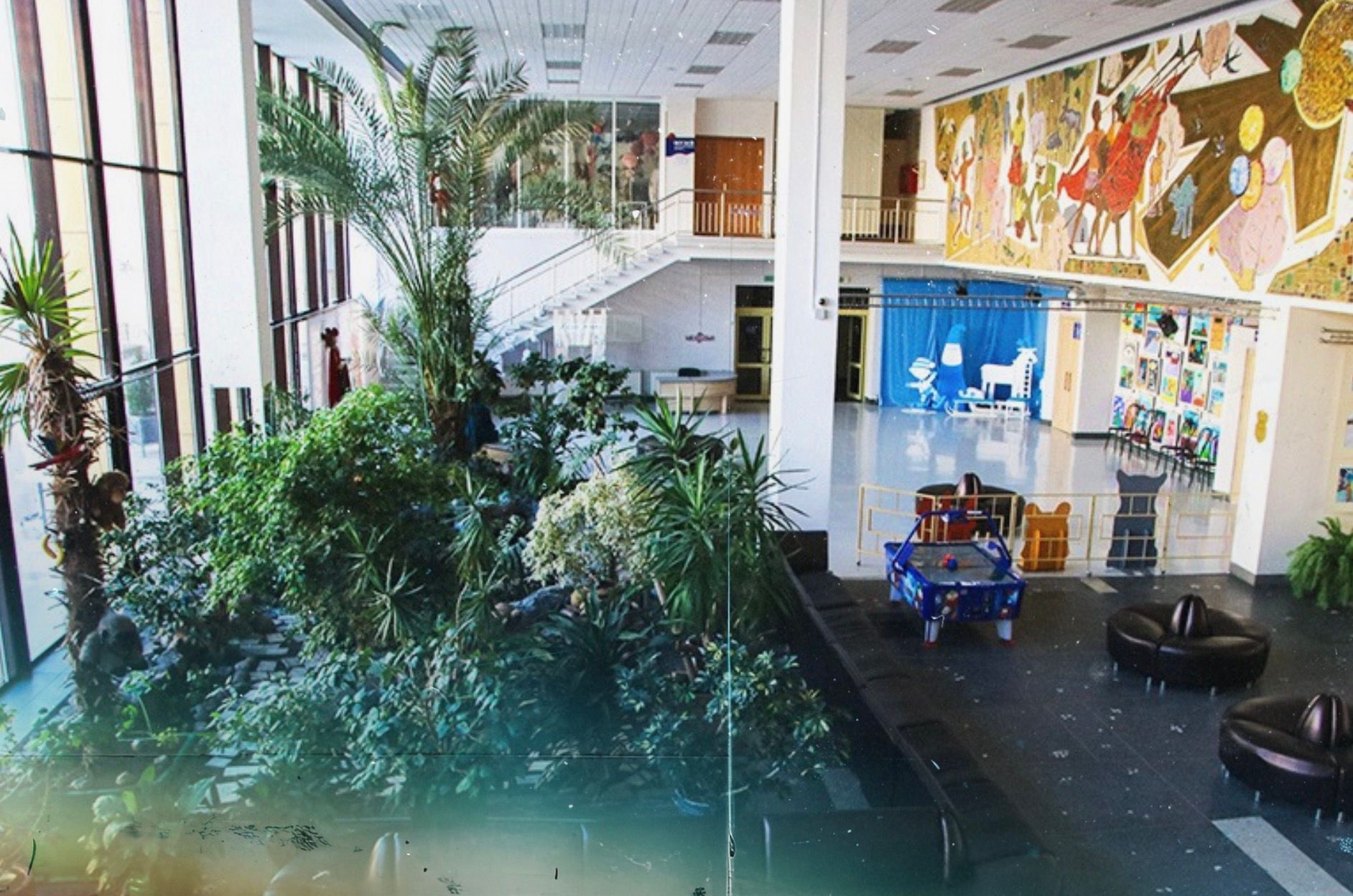
– It was a cool place, – recalls Mikałaj Miatlicki, who continued the Dutch-Belarusian connection, inviting DJ DNA again along with a sax player named Saskia Laroo. – The party took place in Addis Abeba but had an interesting sequel. Some of the attendees overheard there was a Dutch musician making an appearance. Guys in fancy cars started asking me 'Are you the guy who brought her over? Let's have her play at our club too. We have this place nearby – Xantia club at the Army Palace’. Saskia agreed. Of course, there was a completely different crowd there. Serious people in maroon blazers with very serious expressions on their faces.
According to Kutuzov, Xantia was the place were glamour made its first appearance in Miensk. The club was named after the popular Citroën model: initially, the building housed a car dealership, that turned into a dance club in the evening. Gangsters and the cocktail crowd eventually started showing up there. Cover charge was 20 U.S. dollars, it was the first place that had both face control and cocaine. Several shootouts and stabbings took place there.
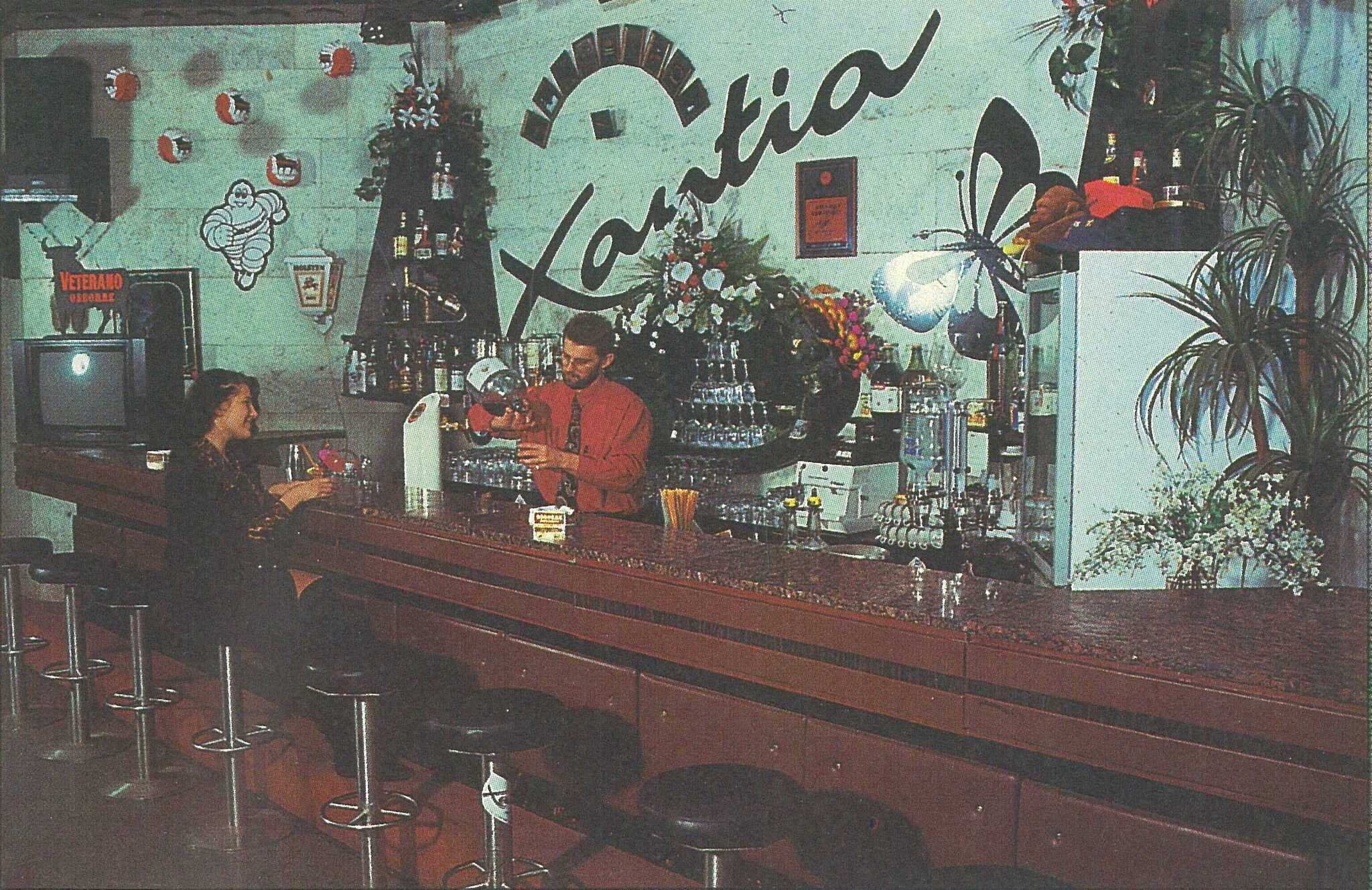
The club was located in an elite military funeral hall. During the day a ceremony for a deceased senior military official would take place in the same space that would turn into a nightclub in the evening. The decor featured black granite and decorative metal torches on the walls. In the center of the room was a white marble rectangle where a catafalque with a coffin was placed. Claus met Aliaksandr Manyšaŭ, the main promoter of Xantia, and began organizing weekly parties on Wednesdays there. Today, Manyšaŭ is one of the heads of major national event agencies Korporatsiya Razvlecheniy (Entertainment Corporation) and Atom Entertainment, who would later organize large commercial festivals like Global Gathering in Belarus and tours of foreign stars, such as Depeche Mode.
– Everything there was covered in marble, the acoustics were terrible, with an echo that was just... – recalls Micia. – But everyone was fine with it. Regular repertoire was mainstream pop music and Claus played electronic music on Wednesdays. You know 'let's give him Wednesdays, it's a dead day anyway, maybe he'll attract at least some customers'. In reality, Claus’s parties were packed, and no one was bothered by the fact that they had work the next day. It felt like a weekend in the middle of the week.
<h2>The Switch Club: Beyond House and Techno</h2>– Things were good, all the party organizers were friendly with each other. The only thing was, DJ Mitya, Paliony, and myself had slightly different musical tastes, – continues Alexi Kutuzov. – While I was more drawn towards the underground – acid house and techno – they were more into house music and disco house.
Then I went on vacation to Yalta together with my friend Yarik, who later became a DJ too. There our musical tastes just clicked. So I decided to split up with Mitya and Paliony, leave disco and house to them and instead work on the new label concept that we came up with together with Yarik – The Switch Club. Upon my return, we had a good talk, parted on good terms, and then took off with our own label.
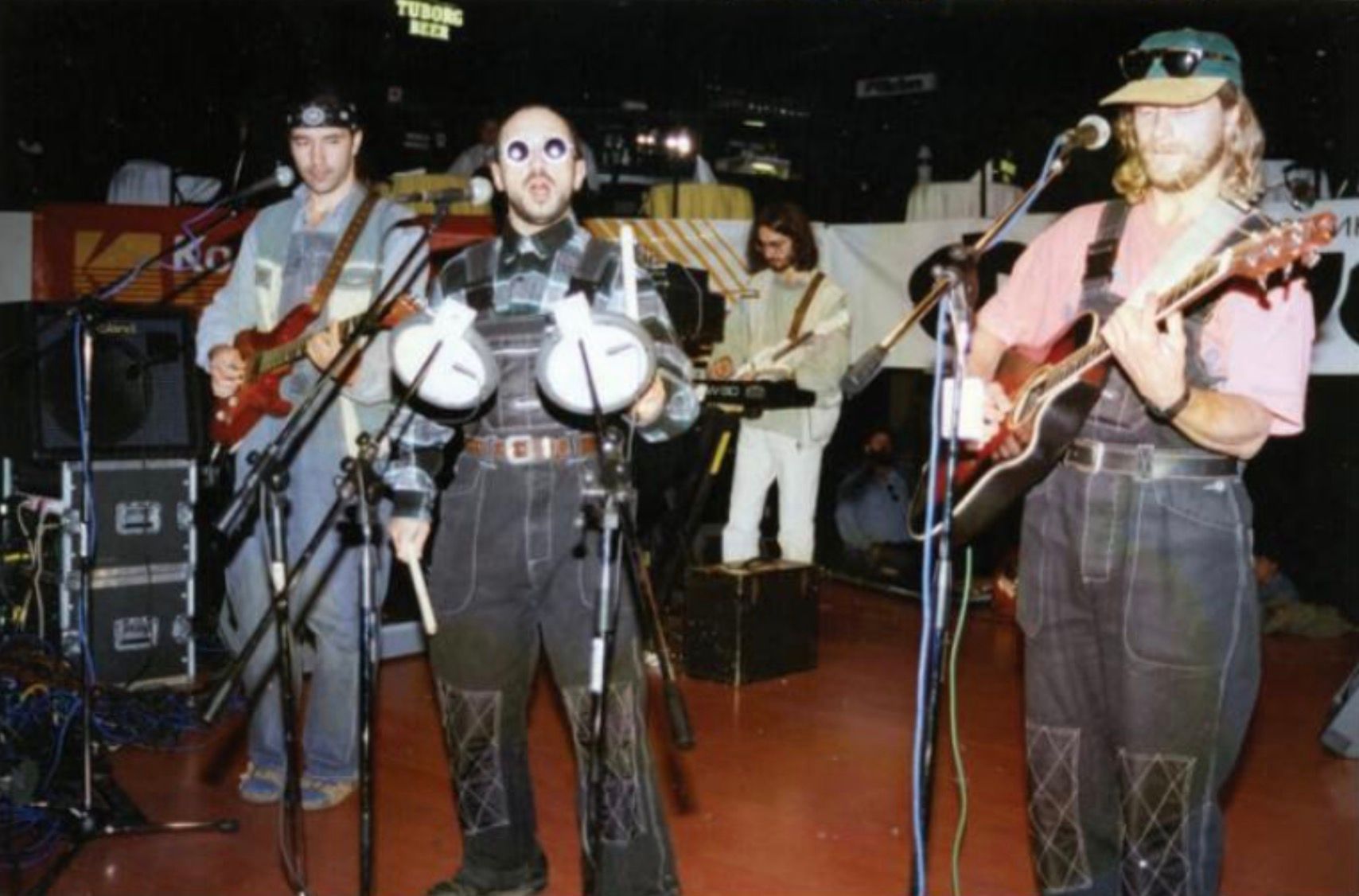
We had a grand opening at the Vol'naja Scena (Free scene) theater, which is now the Drama Theater on Krapotkin Street. The deal we had with the theater was that we'll show a stage play first. After that, we had a concert featuring Belarusian Climate, Drum Ecstasy, Valik Grishko, The R.A.F. Golf Clubs, and HDDn Name. And then I DJed solo the rest of the night – from midnight to 6 a.m.
After that party, it was obvious to the entire city that The Switch Club is the real deal. So Belarusian Climate and the New Faces foundation offered The Switch Club the role of curating the cultural exchange between Miensk and Eindhoven. In the fall of 1995, the next delegation from the Netherlands arrived. More than 20 people: photographers, designers, public figures, environmentalists, VJs, and directors. Among them were the noise-industrial band Zombies Under Stress and DJ Rude-E, a resident of the legendary club Effenaar.
<iframe width="560" height="415" src="https://www.youtube.com/embed/b-CUpZOyDIM?si=lQFN3i4_eWaqIT_D" title="YouTube video player" frameborder="0" allow="accelerometer; autoplay; clipboard-write; encrypted-media; gyroscope; picture-in-picture; web-share" referrerpolicy="strict-origin-when-cross-origin" allowfullscreen></iframe>Rude-E, of course, brought his turntables and heaps of vinyl. That week was the first time Miensk heard the sounds of big beat, breakbeat, jungle and drum'n'bass. It was a life-altering experience for many, including Alexi Kutuzov himself. It was then that he realized that house and techno are good and fine but he absolutely had to get into the broken beats.
<h2>A Rave at a National TV Studio</h2>The eventful year of 1995 concluded with a rave at the Belarusian Television and Radio Company studio. This party was conceived by Saša Balšavik, then owner of a major computer firm at the time. He would later open Salut (Salute) club, but first he had to test this new rave concept.
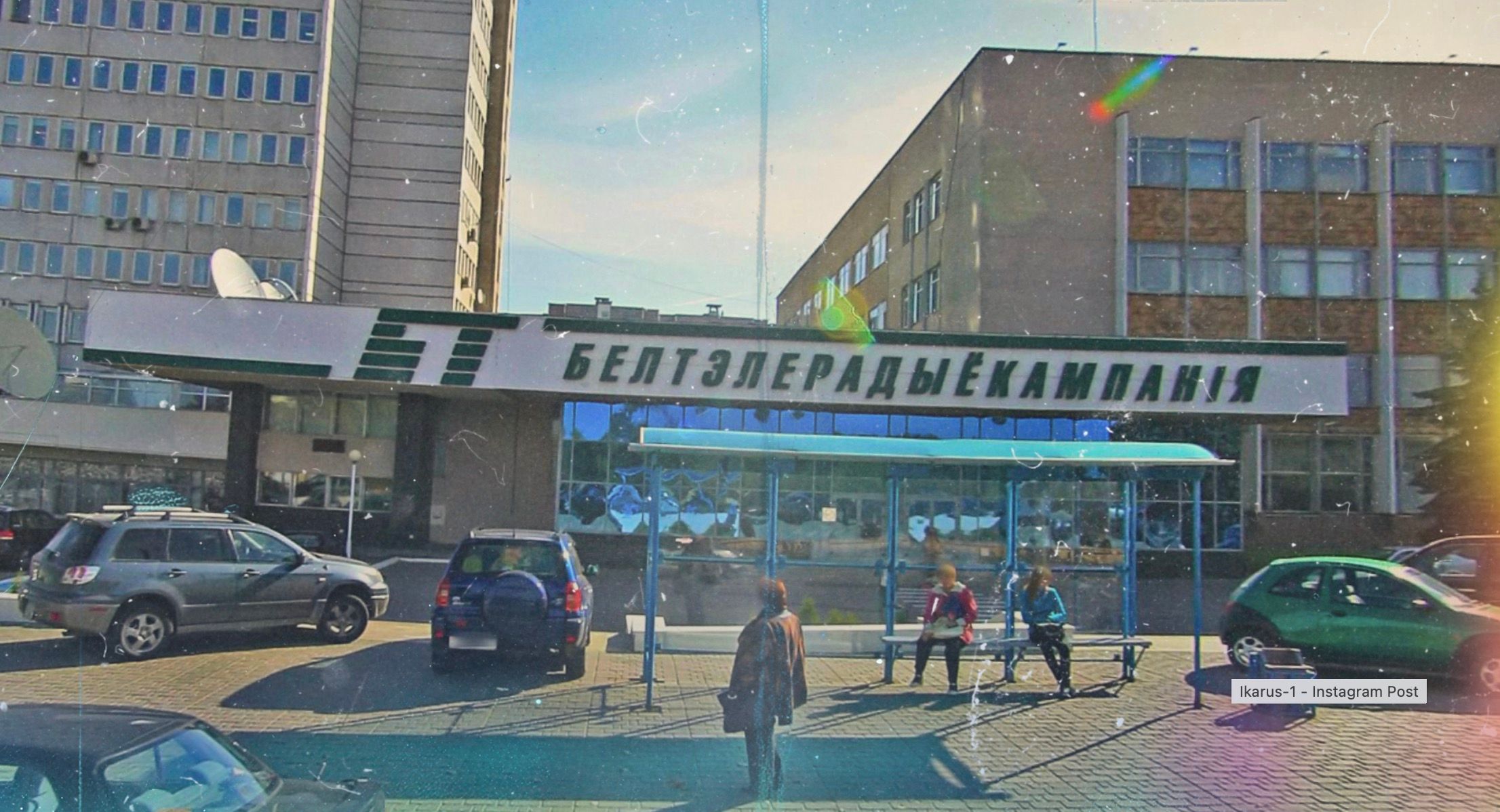
– We booked a large studio on Makajonka Street: high ceilings, a massive Dynacord soundsystem, lasers – everything was well-organized. The plan was to have two parties – on December 30 and 31, – recalls Kutuzov. At that time, Micia and Paliony had temporarily paused their activities, and Yarick hadn’t yet opened his DJing chakra. So Alexi was the sole DJ for the two nights of the big event. – Yarick retrofitted Soviet Radiotehnika cassette decks with the help from his friend. They built in resistors that changed the cassette speed, effectively giving you pitch control. We eventually got a hang of mixing using those. And that's how I would mix that entire party.
That rave was a total revelation for many. First of all, it was free. Secondly, it took place in the largest studio of a state-run TV channel. The space was packed with nearly 1,000 people. The police closed down the entrances before 1 a.m., so many more people just weren’t able to get in. The police and the TV officials were shocked by the turnout and the whole event. So they simply banned the second night, despite Balšavik's financial backing. That’s how 1995 ended in Miensk.
<br>* * *
From the first Christmas Party at the Dynama sports complex to large-scale yet spontaneous raves in cultural centers, schools, theaters, assembly halls, and TV studios, these three years marked the opening chapter of the Miensk club scene. It was a time fueled by pure enthusiasm, a relentless desire to be part of the movement, and a thirst for cultural liberation from the stagnant remnants of the Soviet era.
By the mid-90s, electronic instruments – synthesizers, samplers, and computers with audio cards – started becoming accessible to Belarusian musicians. This accessibility sparked the rise of a new wave of Miensk electronic artists. Curious about who these pioneers were and what kind of music they created? Read on in the next feature, based on the podcast "Ikarus: Stories of Electronic Music of Belarus".
Check out the podcast on Spotify, SoundCloud and Apple Podcasts

Translation into English by Alik Khomiak, artwork by Yana Zenovitch
